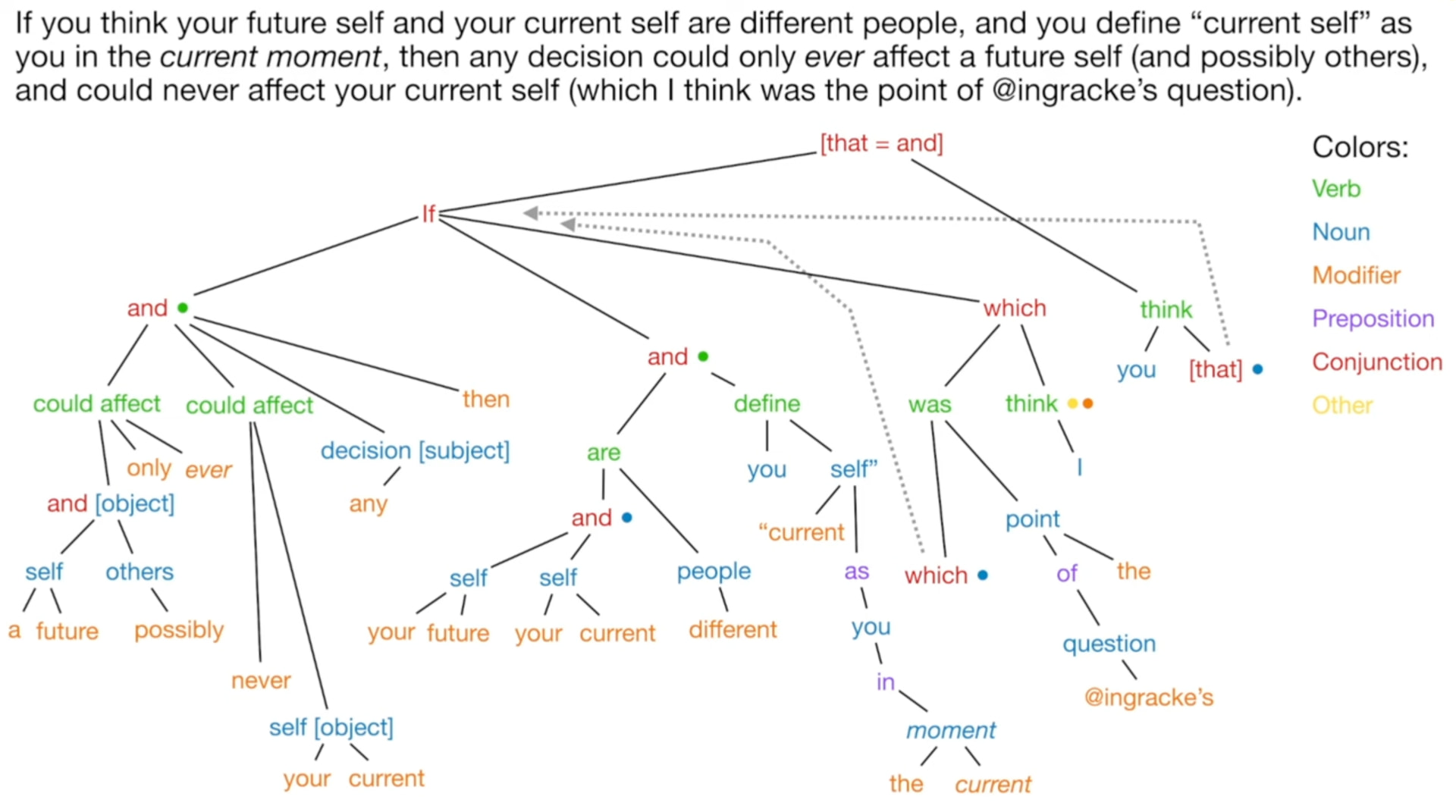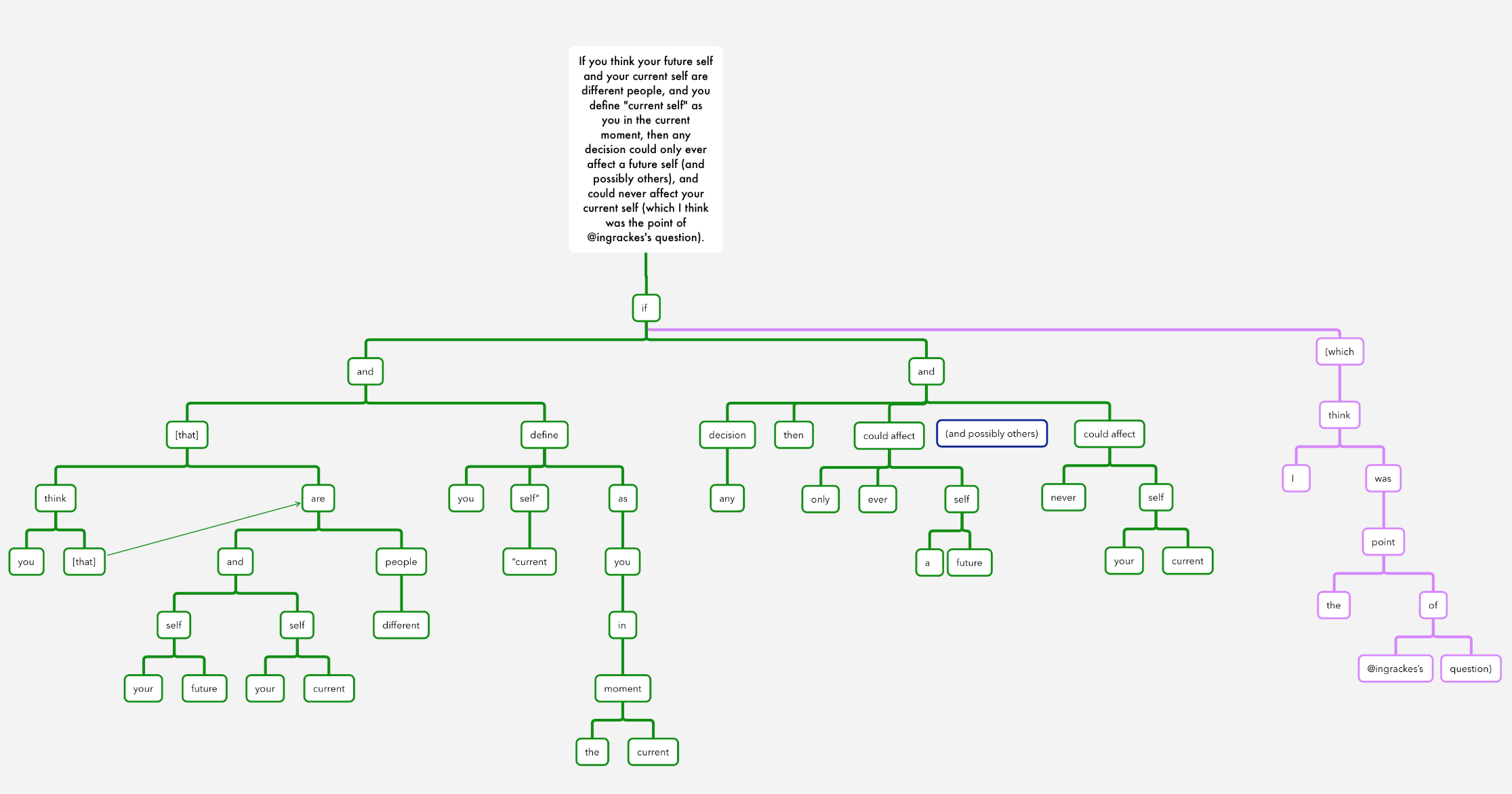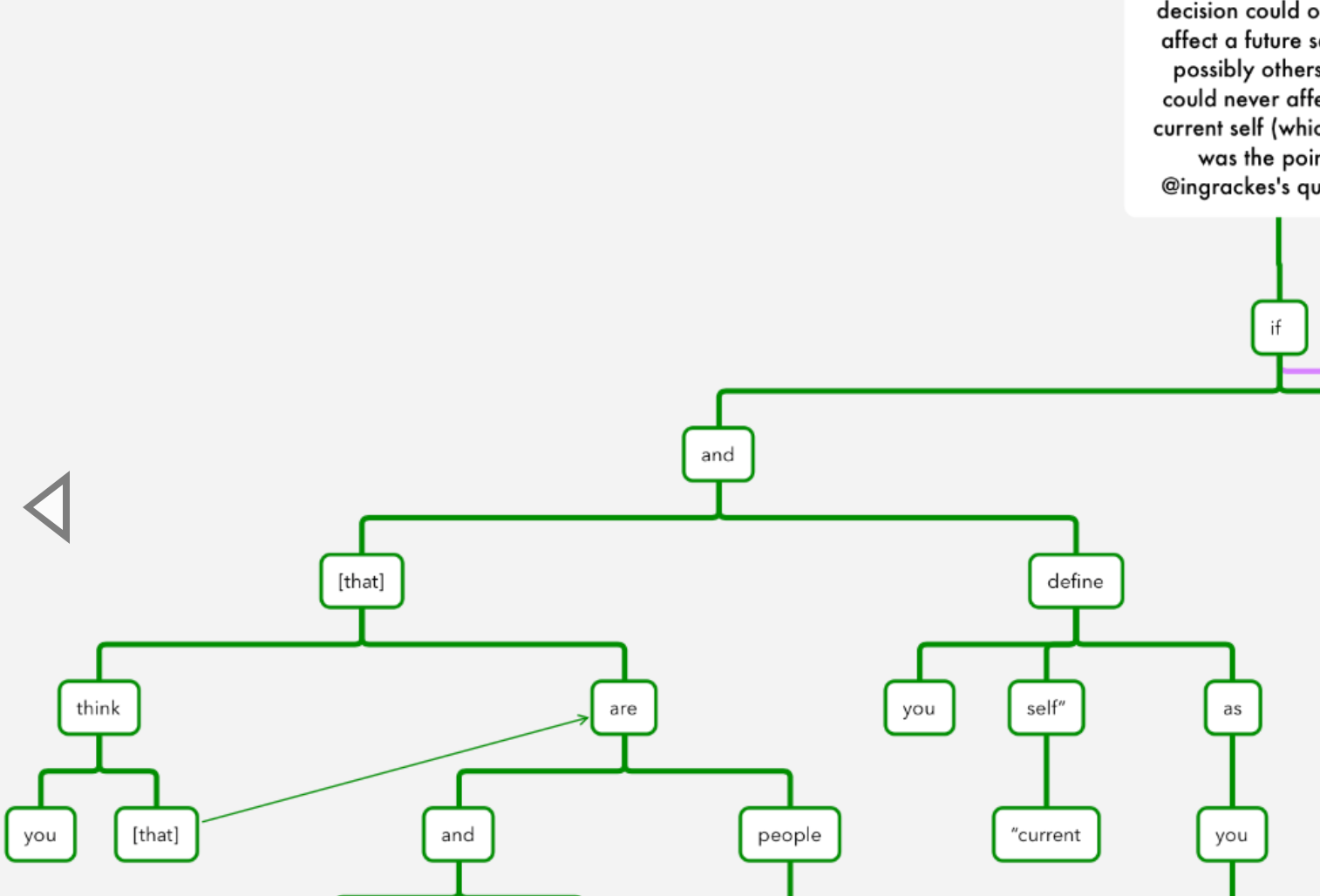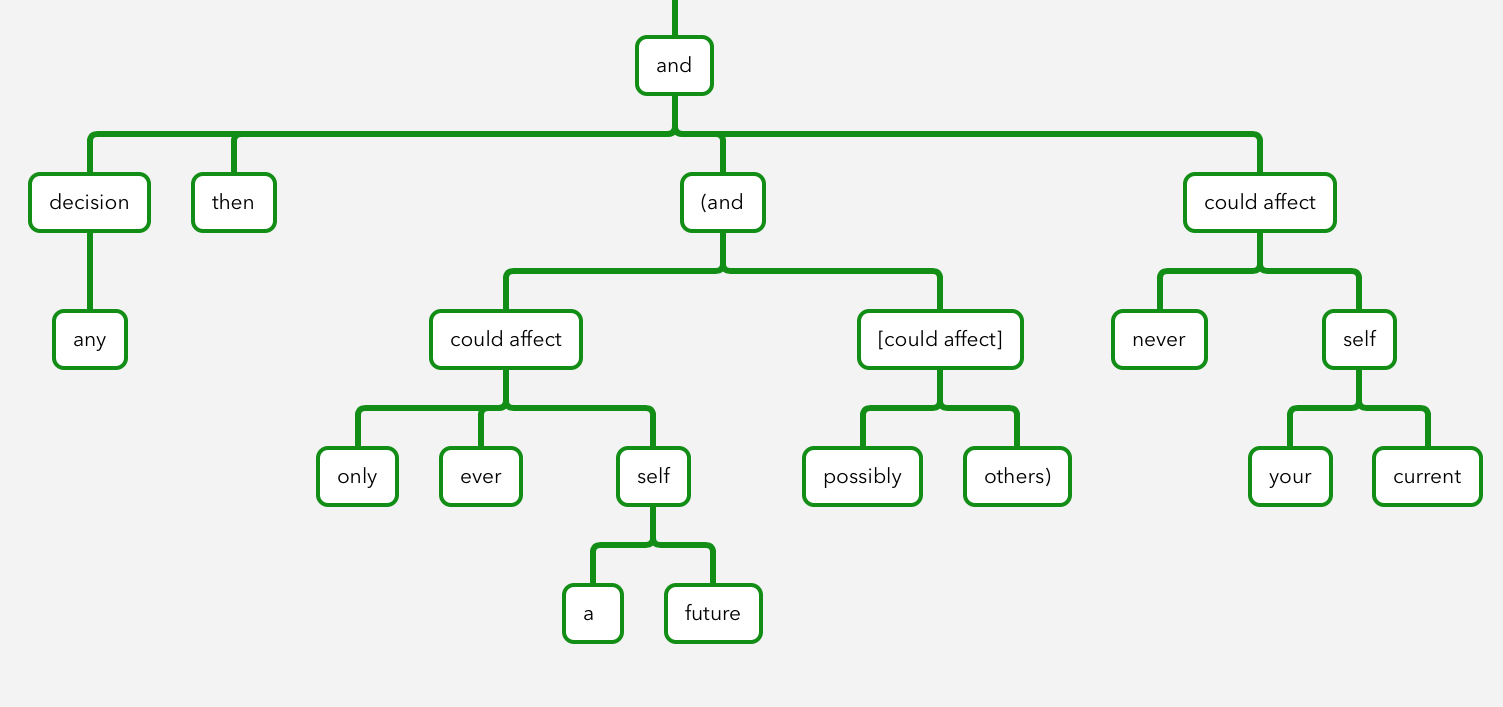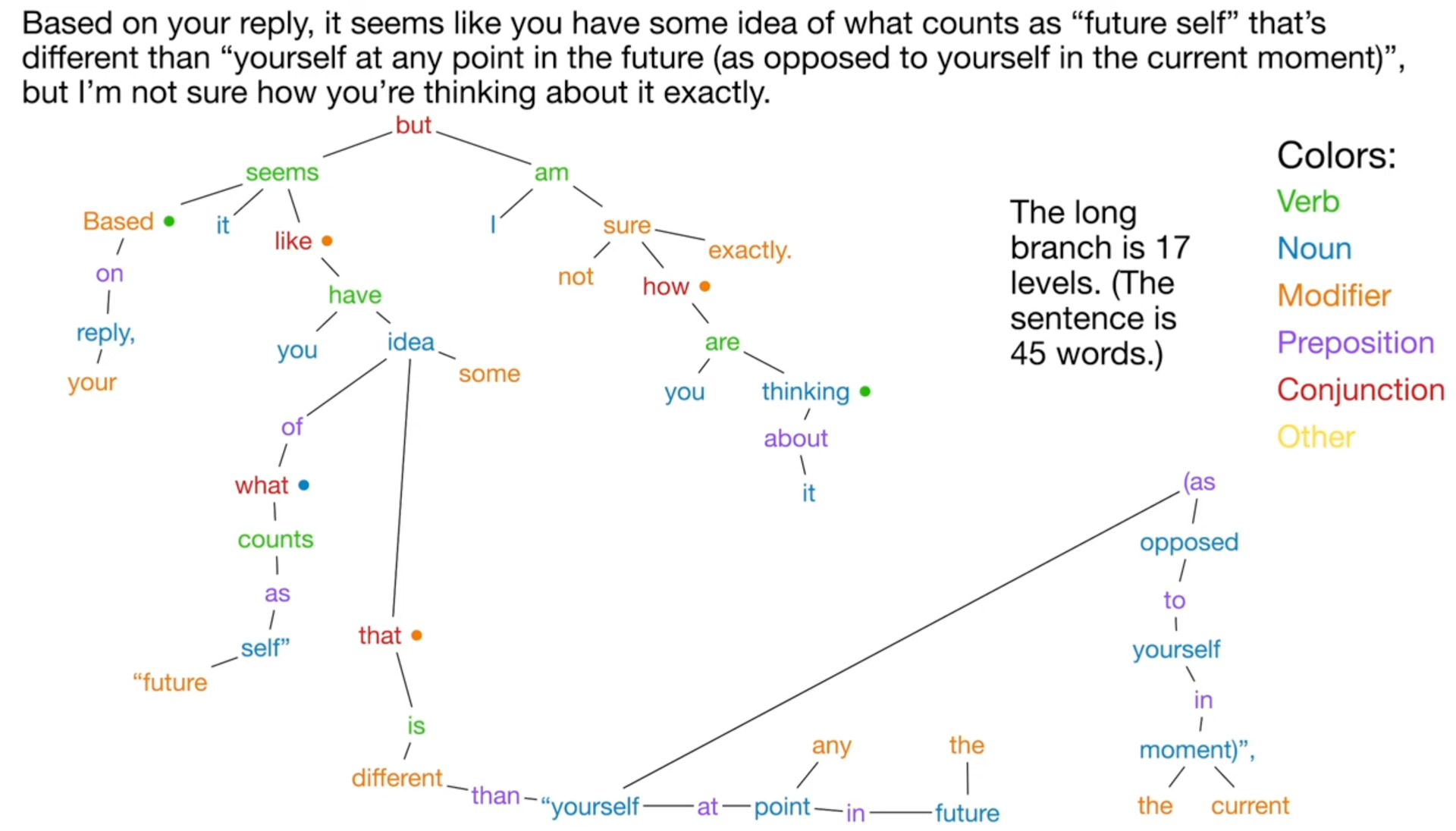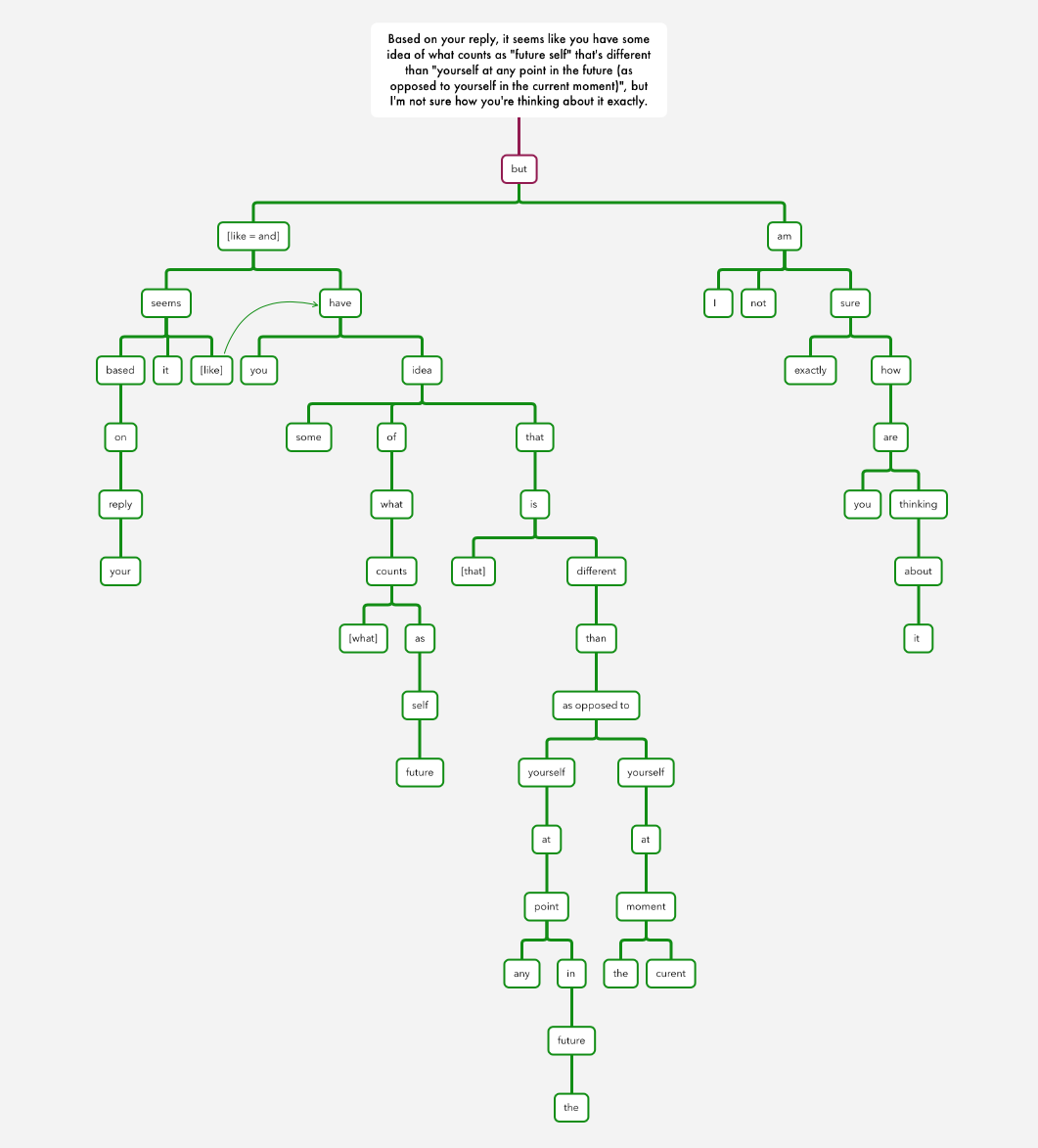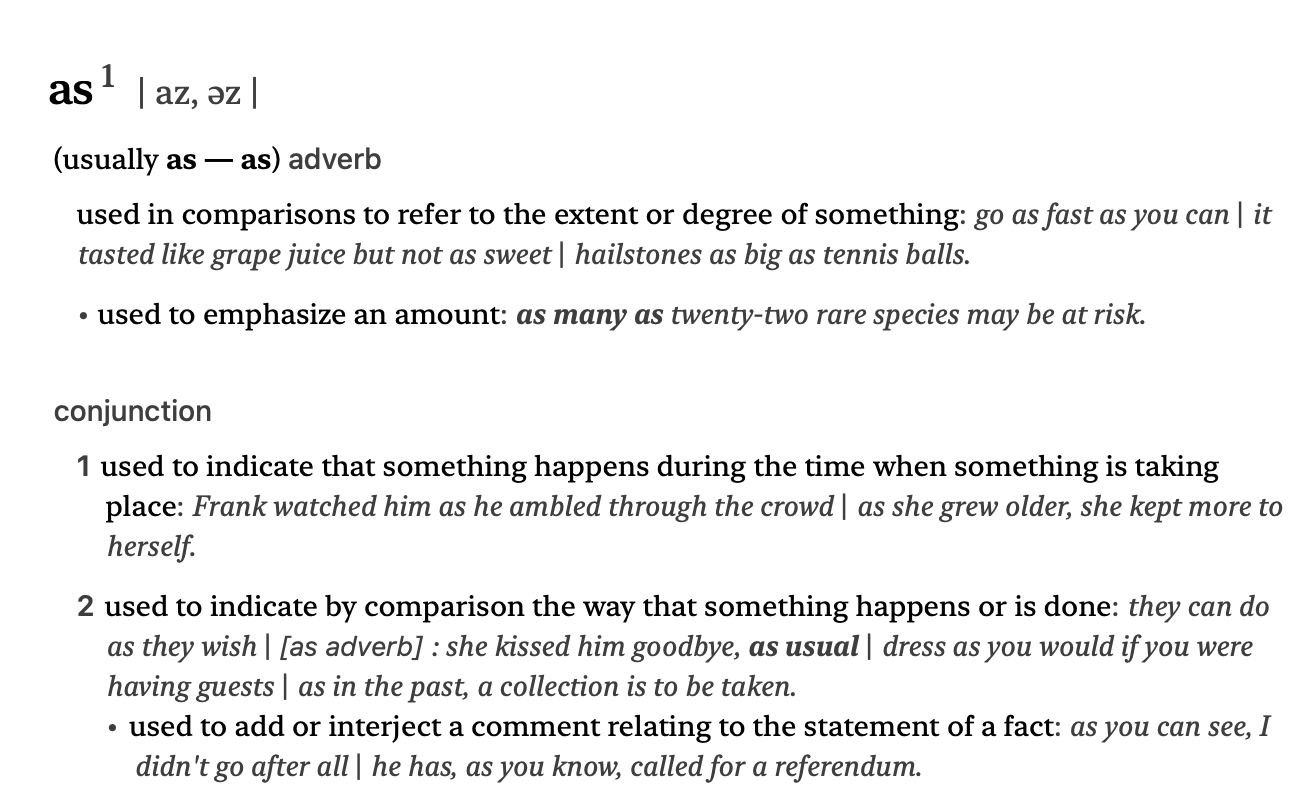I did some more of the 3-length exercises today. I was much better than previously. (I timed them and used the laps function on the stopwatch for each paraphrase of different length. Sometimes I forgot to press it though.) Something I changed was that I just read the paragraph once before doing them, and while I read I focussed my attention a lot on forming an idea of what was happening as I read it. I don’t know if that’s responsible for the change, or if I just had a bit more experience, or what, but it felt easier and I did a number of paraphrases in one sitting that I thought worked well. Here are some (all are from 1984 still):
The tiny interior of the shop was in fact uncomfortably full, but there was almost nothing in it of the slightest value. The floorspace was very restricted, because all round the walls were stacked innumerable dusty picture-frames. In the window there were trays of nuts and bolts, worn-out chisels, penknives with broken blades, tarnished watches that did not even pretend to be in going order, and other miscellaneous rubbish. Only on a small table in the corner was there a litter of odds and ends—lacquered snuffboxes, agate brooches, and the like—which looked as though they might include something interesting. As Winston wandered towards the table his eye was caught by a round, smooth thing that gleamed softly in the lamplight, and he picked it up.
The junk shop was cramped. Something caught Winston’s eye.
The junk shop was tiny and full of worthless things. Only a small section in the corner looked like it might have anything of interest. Something smooth and shiny caught Winston’s eye.
The junk shop was uncomfortably full, with only small space to walk around on. There were picture frames stacked up the walls, trays of nuts and bolts, and watches that were obviously broken. There only looked to be a small section in the corner that might have anything interesting. A shiny smooth object caught Winstons’ attention.
4:14 total. I came up with what became the medium length one first.
It was a heavy lump of glass, curved on one side, flat on the other, making almost a hemisphere. There was a peculiar softness, as of rainwater, in both the colour and the texture of the glass. At the heart of it, magnified by the curved surface, there was a strange, pink, convoluted object that recalled a rose or a sea anemone.
It was a lump of clear glass with something in it.
It was a smooth lump of clear glass, that contained something like a rose or sea anemone.
It was smooth, clear lump of glass, flat on one side, and curved on the other. It looked like water, and it had the effect of magnifying a small object suspended in the glas that looked something like a rose or a sea anemone.
2:29. Did short first, then medium, then long.
Winston immediately paid over the four dollars and slid the coveted thing into his pocket. What appealed to him about it was not so much its beauty as the air it seemed to possess of belonging to an age quite different from the present one. The soft, rainwatery glass was not like any glass that he had ever seen. The thing was doubly attractive because of its apparent uselessness, though he could guess that it must once have been intended as a paperweight. It was very heavy in his pocket, but fortunately it did not make much of a bulge. It was a queer thing, even a compromising thing, for a Party member to have in his possession. Anything old, and for that matter anything beautiful, was always vaguely suspect. The old man had grown noticeably more cheerful after receiving the four dollars. Winston realized that he would have accepted three or even two.
Winston paid for the object.
Winston handed over four dollars for the glass object. He liked it because it seemed to belong to another time. He realized he probably could’ve offered less for it.
Winston handed over four dollars for the object. It had the air of belonging to another time, and this fascinated him. He guessed that it was a paperweight. It was heavy, but not bulky, so he could conceal it easily. It would be an unusual and so suspicious thing to be caught with it. He realized that he probably could’ve offered less money for it, and the shopkeeper would have still accepted.
4:24.
He lit another lamp, and, with bowed back, led the way slowly up the steep and worn stairs and along a tiny passage, into a room which did not give on the street but looked out on a cobbled yard and a forest of chimney-pots. Winston noticed that the furniture was still arranged as though the room were meant to be lived in. There was a strip of carpet on the floor, a picture or two on the walls, and a deep, slatternly arm-chair drawn up to the fireplace. An old-fashioned glass clock with a twelve-hour face was ticking away on the mantelpiece. Under the window, and occupying nearly a quarter of the room, was an enormous bed with the mattress still on it.
the shopkeeper took winston upstairs to a room that was arranged like a bedroom.
Following the shopkeeper, winston was lead upstairs to a room. There was a chair facing a fireplace, an old 12 hour clock, and a bed under the window.
The shopkeeper lead winston up a tight staircase and over to a room that didn’t look over the street, but over the back courtyard and chimneys. The room was laid out as if it was still in use. A scruffy chair faced a fireplace, a carpet was laid down, and a twelve hour clock sat on the mantlepiece. Under the window was a large wooden bed with the mattress on it.
1:16 - reading and short paraphrase
1:13 - medium paraphrase
1:06 - long paraphrase
3:35 - total
He was holding the lamp high up, so as to illuminate the whole room, and in the warm dim light the place looked curiously inviting. The thought flitted through Winston’s mind that it would probably be quite easy to rent the room for a few dollars a week, if he dared to take the risk. It was a wild, impossible notion, to be abandoned as soon as thought of; but the room had awakened in him a sort of nostalgia, a sort of ancestral memory. It seemed to him that he knew exactly what it felt like to sit in a room like this, in an armchair beside an open fire with your feet in the fender and a kettle on the hob; utterly alone, utterly secure, with nobody watching you, no voice pursuing you, no sound except the singing of the kettle and the friendly ticking of the clock.
The shopkeeper lit the room with his lamp, and Winston found it inviting. He fantasised about living there.
The shopkeepr raised the lamp and in the low light the room looked quite homely. The thought entered winstons mind of renting the room. He knew that was insane. He noticed that he felt like he knew how to live in a place like this. It was like an ancestral memory.
In the soft light of the shopkeepers lamp, the room looked inviting and homely. The thought entered winstons mind of renting the room, but he knew that was a dangerous and insane notion. He felt a familiarity with the room that he couldn’t quite understand. He imagined himself sitting in the chair, warming his feet by the fire, while the kettle boiled. It was like some sort of deep, ancestral memory. The clock ticked away with a friendly sound.
0:42 reading
0:46 short para
1:14: medium para
2:21 long para
5:05 total
There was a small bookcase in the other corner, and Winston had already gravitated towards it. It contained nothing but rubbish. The hunting-down and destruction of books had been done with the same thoroughness in the prole quarters as everywhere else. It was very unlikely that there existed anywhere in Oceania a copy of a book printed earlier than 1960. The old man, still carrying the lamp, was standing in front of a picture in a rosewood frame which hung on the other side of the fireplace, opposite the bed.
There was a bookcase in the corner filled with rubbish. Books had been thoroughly destroyed and it wasn’t likely any survived written before 1960.
Winston noticed a bookcase, and moved towards it. It was filled with trash. The regime has quite thoroughly destroyed books even in the proles quarters. The shopkeeper stood in from of a picture frame.
Winston noticed a book case in the corner of the room, but it was only filled with bits of trash. Books of all kinds had been thoroughly destroyed long ago, and it wasn’t likely than any books before 1960 survived. The shopkeeper stood in front of a picture hung in a rosewood frame on the wall.
0:26 reading
1:00 short para
0:48 medium para
1:46 long para
Winston came across to examine the picture. It was a steel engraving of an oval building with rectangular windows, and a small tower in front. There was a railing running round the building, and at the rear end there was what appeared to be a statue. Winston gazed at it for some moments. It seemed vaguely familiar, though he did not remember the statue.
Winston looked at the picture. It was of a building and it seemed familar.
Winston looked at the picture. It was a metal engraving of an oval building. He noticed he recognised it.
Winston moved over to the picture and looked closer. It was a metal engraving of an oval building with a steel fence around it, a statue out the back, and a tower in front. He somehow recognised it.
2:02 total
